Introduction to Frugal Tips of the Great Depression
Feeling the financial pinch? You’re not alone. These are challenging times, and with prices rising and a recession looming, many families are struggling to make ends meet. But what if I told you that there are frugal tips of the Great Depression that could help us survive this difficult moment in history today?
The Great Depression in the 1930s forced countless people to rethink their approach to finances and global economic systems. Out of that time emerged invaluable wisdom about managing money which is still applicable today.
I will explore some frugal tips of the Great Depression for modern families looking to cut back on spending without sacrificing comfort or style.
Bookmark on Pinterest!
The Historical Context of the Great Depression
The Great Depression Era was a difficult time in world history, marked by financial collapse and widespread poverty. With the economy in shambles, many people were forced to adopt a frugal lifestyle just to survive.

The reality of being unable to afford basic necessities like food, shelter, and clothing meant that people had to be creative and resourceful with what they had.
Rather than living luxuriously, the Great Depression necessitated a more minimalist way of life, where every penny mattered and waste was avoided at all costs.
It was a challenging and sometimes heartbreaking period in history. It also inspired a spirit of resilience and determination in those who lived through it, providing us with valuable lessons and frugal living tips that we can use today.

Learning From the Past Inspires Frugality in the Present
Studying history provides us with invaluable lessons that we can apply in our present lives. One such lesson is the importance of frugal living.
In the past, people had to be frugal out of necessity. Resources were scarce, and wastefulness was not an option. However, in today’s society, where consumerism and convenience reign supreme, we often forget the significance of living frugally.
Learning from the past can inspire us to live a more mindful lifestyle, where we prioritize the things that truly matter.
Being frugal doesn’t mean sacrificing our happiness or comfort. Instead, it allows us to focus on what truly brings us joy and fulfillment. So, let’s look to the past for frugal tips of the Great Depression that we can apply to our modern lifestyles.
Growing Your Own Food During the Depression
Growing your own garden produce is a frugal tip from the Great Depression that became a popular way to save money and supplement a family’s diet. These gardens became known as, “depression gardens.”
Backyards were transformed into small gardens and even empty lots in urban areas were converted into thriving vegetable plots. This resourcefulness and determination to provide for oneself and their community speak volumes about the resilience of the people during this very hard and challenging time.
Frugal Gardening is a Frugal Practice From the Great Depression Era
During the Great Depression, many Americans had to get creative with their gardens to make their limited resources go a long way. One frugal gardening practice was to save all food waste, such as eggshells, food scraps, and coffee grounds, They were used to make compost to nourish the soil.
In addition, it was common practice to plant crops in close proximity to each other in order to maximize space and yield. This technique, known as companion planting, has been shown to improve overall plant health and reduce the need for pesticides.

Finally, many Depression-era gardeners took advantage of natural pest control methods, such as attracting birds and beneficial insects to their gardens, rather than using harmful chemicals.
Related Post: Blooming on a Budget: Frugal Gardening Tips
Tips on Starting a Small Garden
For those looking to start a small garden and grow their own produce, there are a few tips to keep in mind.
First, make sure to choose a location with plenty of sunlight and good drainage for your garden. Second, consider using organic methods to control pests and fertilize your plants. For example, set up a compost pile for inexpensive, homemade fertilizer.

Lastly, be sure to store or preserve any excess produce you may have. Some simple ways to preserve food include canning, pickling, freezing, and drying.
Here’s a related post, Home Canning Adventures: Is the Journey Worth it?
Save seeds for next year’s garden or even consider bartering your extra produce with neighbors or friends. With a little planning and effort, you can enjoy the benefits of a home garden and cut costs on your grocery list in the process.
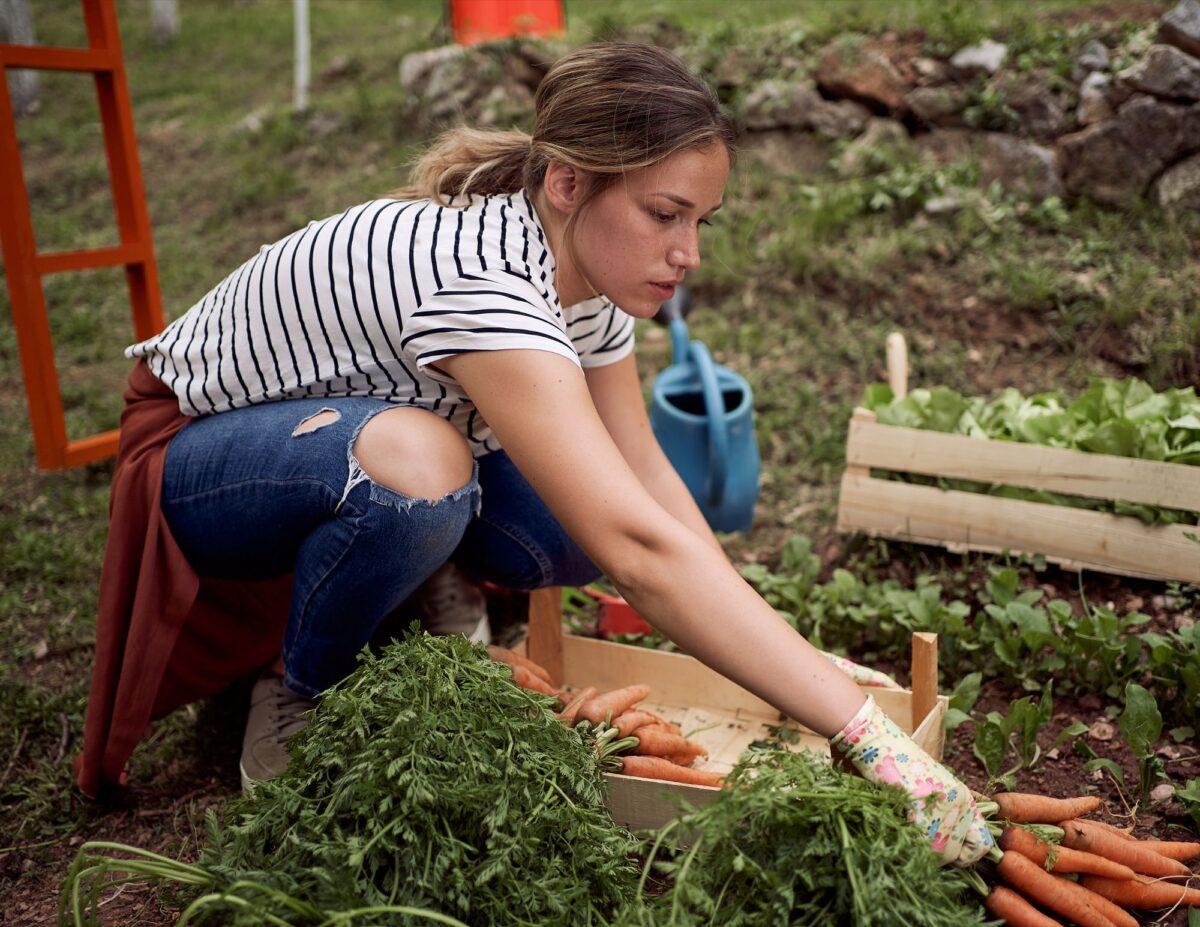
Make Do and Mend During the Depression Times
During World War II, when resources were scarce and rationing was in place, the British idea of “Make Do and Mend” became popular. It went like this: Use it up, wear it out, make it do, or do without.”
This concept emphasized the importance of fixing and reusing rather than throwing away and buying new. The idea was so impactful that it even made its way over to the United States.
Women during the Great Depression used flour and feed sacks to make clothes according to Little Things. “Innovative and desperate, they often emptied the sacks and used the fabric to make clothing for their children.” The companies that made the flour and feed sacks soon caught on and created new patterns. It seems to me it was done as a sales incentive.
Instead of giving in to the latest trend or impulse buy, we can take the opportunity to repair and reuse garments, appliances, and other possessions. A mindset that values preservation over consumption can help us save money.

The Value of Resourcefulness and Repairing Instead of Replacing.
In today’s consumer-driven society, it’s easy to believe that the solution to any problem is simply purchasing a replacement. However, taking a more resourceful and frugal approach can not only save you money but also provide a sense of satisfaction and accomplishment.
Repairing instead of replacing can be a great way to minimize waste and extend the lifespan of your belongings. Whether it’s fixing a tear in your favorite shirt or reviving an old piece of furniture, don’t underestimate the power of resourcefulness.
I’ve had the same washer and drier since 1992. My husband repaired my machines numerous times so we weren’t spending money to have them repaired. We also didn’t need to purchase high-cost replacements.

By putting in a little effort, you can not only save money but also develop a valuable skillset in the process.
Frugal Living Tips For Mending and Making Do From The Depression
One way to extend the life of our clothing is to avoid over-washing them. Instead, we can spot-clean clothes and hang them dry naturally if possible. Another great way to keep our favorite outfits is by replacing buttons and mending small holes.
Additionally, making homemade gifts instead of buying store-bought gifts is an easy way to show someone you care without spending so much money. Use your creativity and skillset, like sewing, to come up with thoughtful and unique presents.

Lastly, repurposing materials can be a fun way to keep your clothing in use, like turning an old t-shirt into a reusable shopping tote.
Cooking from Scratch From the Era of the Great Depression
During the Great Depression era, families had to adopt a frugal lifestyle in order to put food on the table. Meals were made using frugal recipes, utilizing the few ingredients that were available.
The people of that time used less meat in their meals and made meals stretch further with simple ingredients such as potatoes, beans, and eggs. Making bread from scratch became a frequent task, as pre-packaged loaves were often too expensive.
Simple soups, stews, casseroles, and porridges were a popular choice for their affordability and that helped to reduce costs while still providing nutrient-rich meals. Bacon grease was re-used as a cooking fat, and leftovers were never wasted.
Related post: 22 Best Egg Recipes When You Have Lots of Eggs
Cooking Meals From Basic Ingredients During the Great Depression
During the Great Depression Era, a lot of families were forced to make do with very little. This meant getting creative in the kitchen and turning basic ingredients from the pantry like flour, eggs, and milk into delicious meals.

Cooking from scratch was a way of life, and even children learned how to make their own bread and pasta.
Since meat was scarce, meals were often vegetarian or made with cheaper cuts like liver and kidneys. But despite the hardships, families found comfort and joy in the simple act of coming together around a home-cooked meal.
In many ways, this period of history reminds us of the importance of self-sufficiency and making the most of what we have.
Recipes For Nutritious Meals as Inspired by the Great Depression
Eating healthy shouldn’t have to cost a fortune. With a few staple ingredients, you can make inexpensive and nutritious meals.
Start with a hearty pot of whole-grain oatmeal. You can dress it up with fresh fruit, nuts, and a drizzle of honey for a filling breakfast.
For an easy cheap lunch, cook up a big pot of lentil soup. Use low-cost ingredients like carrots, onions, and garlic that are packed with nutrients.

Lastly, for dinner, try making a vegetable stir fry. Start with one or two heads of broccoli and add in whatever vegetables you have on hand.
Related post: Cheap Healthy Snacks Your Family Will Love!
Money-Saving Tips for Meal Prep
Plan meals in advance and shop with a list so that you don’t buy more than what you need when grocery shopping. You can also use coupons, grocery saving apps, and take advantage of store sales to save money on groceries.

Related post: How to Save Money on Groceries Without Coupons: 28 Ways
When it comes to meal prep, bulk cooking in addition to freezing meals can be helpful in saving time and money. For example, you can cook a large batch of chili or soup and freeze individual servings for easy meals throughout the week.
Additionally, try and buy bigger cuts of meat such as whole chicken or roasts. Large cuts of meat are usually more cost-effective than smaller pre-packaged meats. My post, How to Save Money on Meat, has many more ideas to save money.
Finally, don’t forget to make use of leftovers! Leftover ingredients can be used to create entirely new meals or even added to a salad or sandwich.

Frugal Laundry and Sewing During the Depression
During the Great Depression, many people couldn’t afford to buy new clothes. They didn’t do regular laundry like we do today. But with a few tips and tricks, savvy homemakers were able to get the most out of their clothing and keep them looking good.
Related post: 8 Brilliant Hacks to Slash Your Laundry Costs
Washing Clothes During the Great Depression
During the Great Depression Era, people had to be resourceful, and one of the many ways they showed this was to wash clothes by hand. Unlike today, doing laundry was a time-consuming and physically demanding task that required skill and patience.
Without the luxury of washing machines, they used a washboard and thoroughly hand-scrubbed their garments. Furthermore, they made their own detergent using various ingredients like soap flakes, baking soda, and borax.

Finally, after washing and rinsing, they hung their clothes on a clothesline to dry in the sun. It was a simple yet effective way to complete the task of laundry without electricity, and it also allowed their clothes to smell fresh and clean.
Clothing During the Great Depression Era
The Great Depression Era was a time of scarcity and ingenuity, and people had to find ways to make do with very little. One of the ways people coped was by making their own clothes, repairing clothes, and repurposing scraps of material.
It was a way of stretching their resources as far as possible and ensuring that their families were clothed and warm. They also wore many layers of clothing in cold weather to stay warm.
Frugal Clothes and Laundry Ideas From the Great Depression
In today’s fast-paced world, being frugal is a great way to reduce expenses while still being able to enjoy the things you love. When it comes to clothes and laundry, there are a few simple tips that can help you save money and keep your clothes looking great for longer.
One of the best ways to cut costs on clothes is to develop basic sewing skills so that you can make minor repairs yourself. Whether it’s a rip in your favorite shirt or a missing button on your pants, knowing how to sew can help you avoid having to pay someone else to do it.

Once you get past basic sewing skills, you can challenge yourself further by using old clothes to make new items. My daughter used some old jeans that we had and repurposed them into beautiful stylish hats.
Furthermore, you can make your own laundry detergent. Making your own laundry detergent is a great way to save money.

Make your own laundry detergent: Homemade Laundry Detergent: Make it and Save!
Additionally, only full loads of clothes should be washed to cut costs. Also, line drying your clothes instead of using a dryer can save money on your utility bills while also helping to preserve the quality of your clothes over time. By incorporating these simple tips into your laundry routine, you can save money and have fresh-smelling clean clothes.
Waste Reduction and Recycling Tips From the Depression Days
With the economy in shambles during the Great Depression, people had no choice but to stretch every penny as far as possible. Waste reduction and recycling were not just popular choices, they were essential for survival.
This emphasis on resourcefulness had a historically significant phrase that dates back to ancient times and resonated during the Great Depression: “Necessity is the mother of invention,” as famously stated by Plato.
Not only did people find creative ways to save money through mending, swapping, and reusing, but they also recycled materials like paper, glass, and metal.
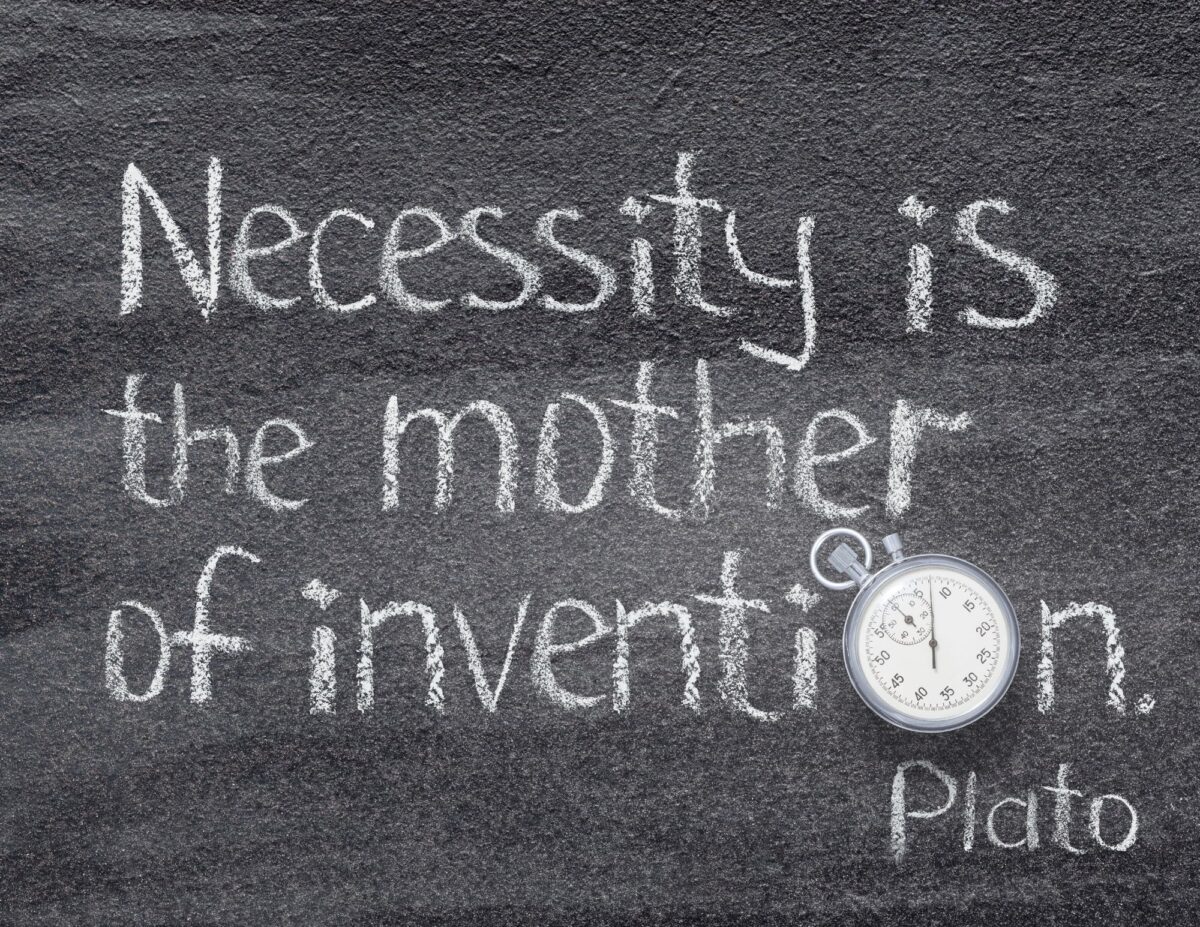
Just a dab of something was used for everything from sketching to scrubbing floors. People also conserved food, not wasting anything that could be reused or recycled.
Resourceful Living: Creative Ways to Minimize Waste and Stretch Your Budget
Resourceful living is all about finding innovative ways to minimize waste and stretch your budget. It’s the mindset of “use it up, wear it out, make do or do without.” This motto has significant historical importance because it was common during the tough times of the Great Depression and World War II.
Today, it’s a phrase that is becoming more relevant than ever in a world of consumerism and waste. Resourceful living can not only save you money but also protect the environment. From turning scraps into compost to repairing clothes instead of buying new ones, there are many creative ways to live frugally and save money.

Ideas For Repurposing Common Household Items and Reducing Waste
In a world where there is an increasing focus on sustainable living, repurposing common household items has become more important than ever before.
This also aligns with the historical significance phrase that was commonly used during the times of our grandparents and great-grandparents – “waste not, want not.”
There are many ways to repurpose old and seemingly outdated items – using old socks as dusters, turning plastic containers into planters, or using old glass jars as candle holders.
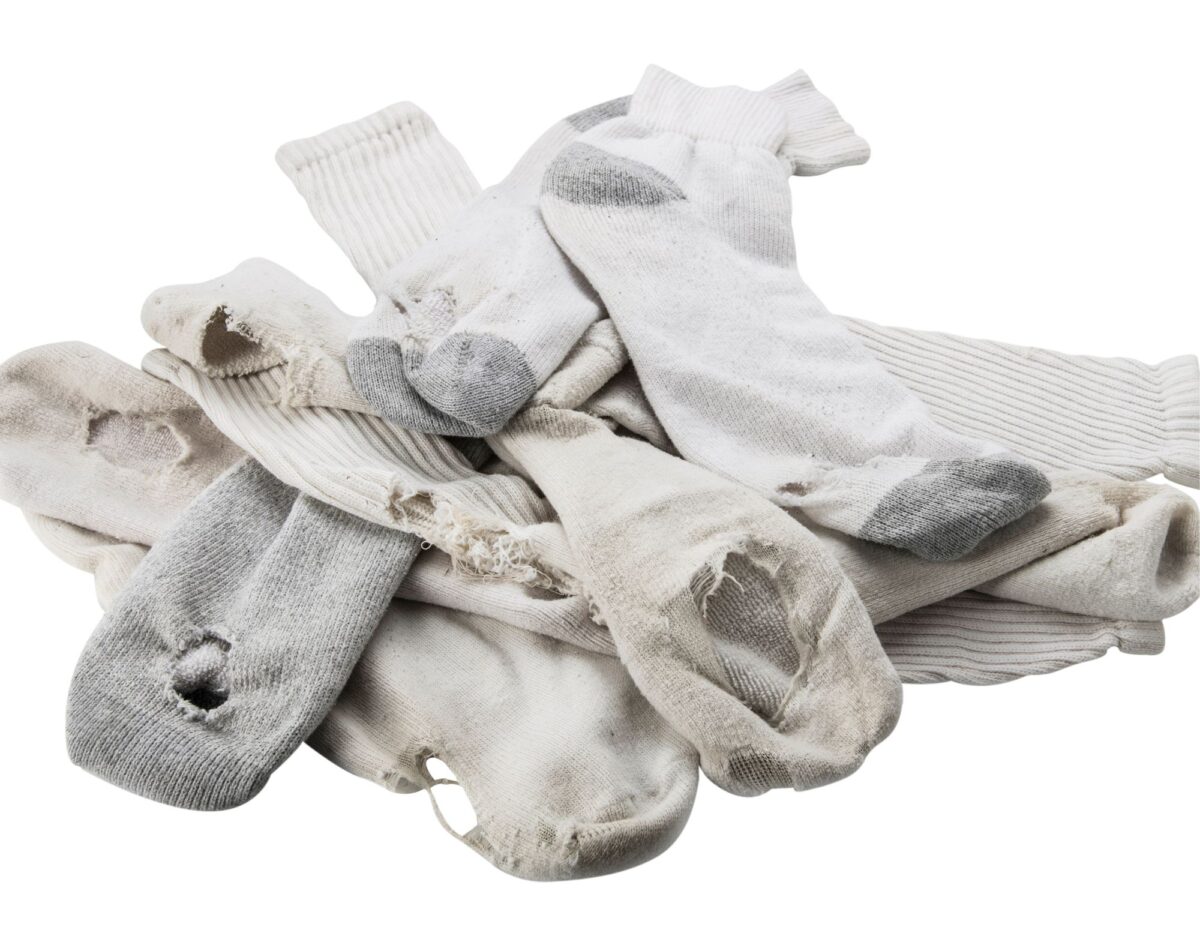
Saving and Budgeting During the Great Depression
During the Great Depression, the idea of saving and budgeting took on a whole new level of importance.
Families were struggling to make ends meet, and the threat of losing everything they had worked so hard for was very real. In order to survive, people had to learn how to live within their means and stretch every dollar as far as possible.
It wasn’t easy, but those who were able to master the art of saving and budgeting were able to ride out the storm and come out the other side stronger and more financially stable.
These lessons from the Great Depression can still be applied today, as we face our own economic challenges. By being mindful of our spending habits and finding creative ways to save, we can weather any storm that comes our way.
The Importance of Saving Money and Budgeting During Challenging Times
In times of economic uncertainty, it’s more important than ever to prioritize saving money and budgeting effectively. Whether you’re facing a job loss or just tightening your belt to weather financial difficulties, creating a plan for your income and expenses can help you make the most of what you have.
By setting financial goals and sticking to a budget, you can ensure that you’re saving for emergencies and necessary expenses while still enjoying the things you love.

Not only will this protect you against unforeseen events, but it can also give you peace of mind and help you feel more in control of your finances. So don’t wait until things get tough to start thinking about your budget – start today and reap the benefits of financial security and stability.
Tips for Creating a Budget, Tracking Expenses, and Saving For Emergencies
Managing your finances can be stressful, but creating a budget, tracking your expenses, and building an emergency fund can help ease the burden.
First, start by outlining all your income and expenses for the month. This will help you identify areas where you can cut back on spending.
Next, track your expenses using an app or spreadsheet to see where your money is going. This will help you make adjustments to your budget. Lastly, consider building an emergency fund by setting aside a small portion of your income each month. A 52-week money saving challenge is a good way to save a small amount each week.
Having a safety net can help you avoid financial stress during unexpected situations. By taking these simple steps, you can gain control of your finances and build a more secure financial future.
Frugal Entertainment Tips of the Great Depression
When times were tough during the Depression, people turned to frugal or free entertainment options to help them forget their worries, even if just for a short while. For most families, radio broadcasts became an integral part of their routine, offering a chance to escape their struggles and enjoy various programs, comedy shows, and sports broadcasts.
Board games were also a popular option, as they brought families together for hours of friendly competition. Movies, though a more expensive option, were still a common pastime, with people flocking to theaters to see Hollywood stars like Fred Astaire and Ginger Rogers.
And let’s not forget about the Great American Novel. These books were a cheap and easy escape for those seeking an adventure or a love story.
Embrace Simple Entertainment
The Great Depression was a time of economic hardship, but it was also a time when people found solace in simple forms of entertainment. This era saw the rise of radio shows, board games, and hobbies like knitting and gardening.
People didn’t need expensive gadgets or elaborate outings to pass the time. They found joy in the experiences that were readily available to them.
Taking a page from their book, we can learn to embrace the value of simplicity in our own lives. We might rediscover the pleasure of curling up with a good book, playing a card game with friends, or enjoying a nature walk.

While modern technology and attractions certainly have their place, sometimes the best entertainment is the kind that’s right in front of us.
Cheap Family Activities
Spending quality time with family can be enjoyable and rewarding. To switch up routine afternoons or evenings, consider activities that don’t cost a fortune.
Board games and puzzles are cheap family activities that can bring out everyone’s competitive spirit and are a great way to involve multiple family members.
For those who prefer a more relaxed approach, reading together is a peaceful way to bond. Instead of buying books, save money by visiting your local library to check out the stacks of books they have there.

Sharing family stories and memories is not only enjoyable, but it also brings everyone closer together. These suggestions are just a few examples of how to enjoy time with loved ones and make long-lasting memories.
DIY Household Products of the Depression
During the Great Depression, many households had to become self-sufficient because of their limited finances. One way they achieved this was by creating their DIY natural household cleaners from scratch using simple ingredients such as vinegar, baking soda, and soap.
For example, they used vinegar to clean windows and mirrors, baking soda to scrub pots and pans, and soap to do laundry. This approach not only helped them save money, but it also allowed them to have control over what ingredients were being used in their products – something that is still popular today.
By making these DIY homemade cleaners, they were able to survive and thrive during one of the most challenging times in history.
Making Homemade Cleaning and Personal Care Products.
Many people are turning to homemade cleaning and natural skincare products as they become more conscious about the impact of commercial products on the environment and their health. Making your own products at home is not only more affordable, but it also allows you to customize the ingredients to suit your preferences and needs.
From homemade lip balm to DIY dry shampoo, there are endless recipes available online that utilize simple, non-toxic ingredients like vinegar, lemon juice, and essential oils. Plus, it can be fun to experiment with different blends and scents until you find the perfect mix for you.

By making the switch to homemade products, you can reduce your carbon footprint and create a healthier living space for you and your family.
Recipes for Creating Natural and Budget-Friendly Alternatives.
Making your own natural and budget-friendly alternatives can be a fun and rewarding experience. By utilizing simple ingredients that can easily be found at your local grocery store or health food store, you can craft a variety of products ranging from household cleaning supplies to beauty products.
For instance, creating a non-toxic all-purpose cleaner can be done by combining vinegar and water with a few drops of essential oils. Similarly, using coconut oil, shea butter, and beeswax can result in a nourishing and hydrating lip balm.

With some experimentation and a bit of creativity, the possibilities are endless. Get started on your journey to a more sustainable and cost-effective lifestyle with these simple and effective homemade recipes.
Bartering and Trading in the Times of the Great Depression
The people of the Depression era knew all too well the challenges of making ends meet with little to no money. They turned to bartering and trading goods and services as a common means of acquiring necessary items inexpensively.
For example, a farmer might trade vegetables for a haircut or a carpenter might exchange a new table for a sack of flour. Bartering not only helped people acquire the things they needed but also fostered a sense of community and support.
It is a reminder that in difficult times, people can work together and help each other out. The practice of bartering and trading during this time taught individuals valuable skills such as negotiation and resourcefulness. These skills would prove beneficial well beyond those tough times.
Importance of Bartering and Trading
Instead of relying on traditional currency, individuals would exchange goods and services directly with one another. Farmers might trade produce for clothing or homemade blankets, while mechanics could barter their skills for food. Families would also borrow from one another.
Modern-Day Bartering Opportunities
In today’s world, the idea of bartering can seem like a quaint relic from a simpler time. However, the practice of trading goods and services still holds value in our community-driven society.
One idea for modern-day bartering opportunities is to organize neighborhood swaps. This could involve inviting your neighbors to bring items they no longer need to a communal location and trading them for something they do need.
Another option is to explore online trading platforms, such as Facebook groups, that connect you with others who are interested in bartering. You can browse available goods and services, negotiate terms with other users, and exchange items without ever leaving your home.
Rise of Thrift Stores and Secondhand Shopping During the Great Depression
During the Depression, many people were forced to find alternative ways to make ends meet, and one such solution was the rise of thrift shops and secondhand shopping.
These stores offered affordable clothing, furniture, and household items that were gently used, but still in good condition. As a result, shoppers were able to get good stuff and stretch their budgets further.
Related post: Mastering Thrifting: How to Thrift Shop Like a Pro
Importance of Thrift and Secondhand Shopping
Thrifting and secondhand shopping have become increasingly popular in recent years and for good reason. It can save you a significant amount of money.

The thrill of finding a unique and high-quality item for a fraction of the price is unmatched. Plus, shopping at thrift shops and secondhand shops can lead to some truly unexpected and exciting finds.
And let’s not forget the satisfaction of supporting small businesses that specialize in vintage and pre-loved items. So next time you’re in need of a new wardrobe addition or home décor item, consider giving thrift and secondhand shopping a try – you may be surprised at what treasures you unearth.
Tips for Finding Quality Secondhand Items
Finding quality secondhand items is a great way to save money. However, it can be tough to know where to begin your search.
One great tip is to start by asking friends and family if they know of any good thrift stores or secondhand shops in your area. You can also search online for secondhand items on websites like Craigslist, eBay, and Facebook Marketplace.
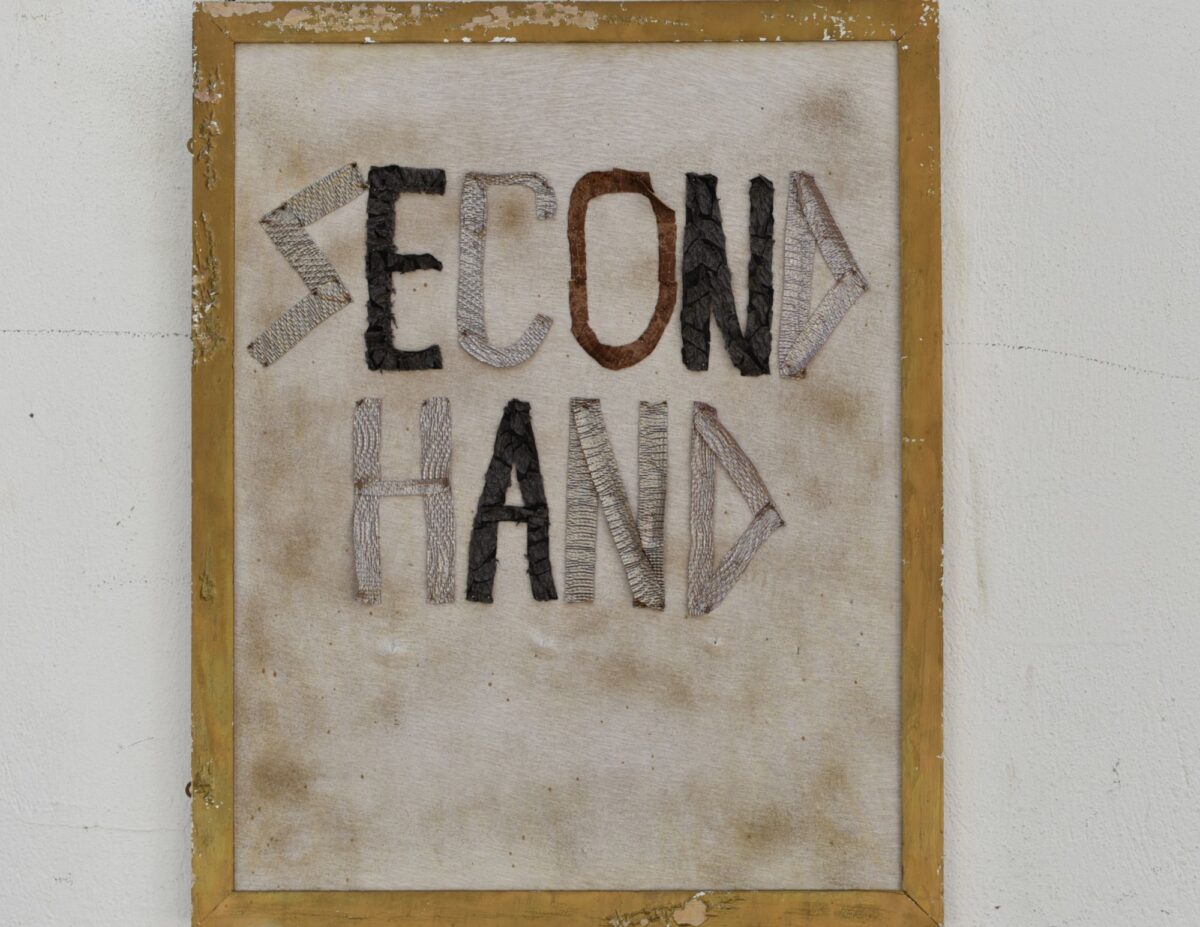
When shopping for clothing, be sure to check for tears, stains, and wear on the seams to ensure that you’re getting a quality piece. Finally, be patient and persistent in your search – you never know when you’ll stumble upon a great piece!
Community During the Era of the Great Depression
During the Great Depression Era, community and mutual aid were more important than ever before, as individuals found themselves in desperate need of support and assistance. With scarce resources and skyrocketing unemployment rates, communities came together to share what they had, whether it was food, clothing, or other necessities.
Community-organized potlucks served as more than just a means of putting food on the table; they provided a sense of camaraderie, fostering a spirit of cooperation and mutual aid that helped communities survive and persevere through the darkest days of the era.
People knew that they could rely on their neighbors and friends to help them get through tough times. The bonds of community grew stronger as a result.
Despite the enormous challenges faced by Americans during the Great Depression, the spirit of mutual aid and resilience persevered, reminding us of the crucial importance of coming together as a community during our greatest times of need.
Importance of Community Support
Community support is an essential aspect of a thriving society. Whether it’s helping out a neighbor with a home repair, volunteering at a local food bank, or simply being a listening ear, supporting those around us can make a significant difference.

In times of crisis or hardship, communities often come together to provide aid and comfort to those affected. This type of support not only lifts up the individual but also strengthens the community as a whole, creating bonds and fostering a sense of belonging.
Encouragement to Connect with Your Local Communities
In today’s fast-paced world, it’s easy to become isolated and disconnected from our communities. But, there’s great value in seeking out connections with like-minded individuals in your local area.
Joining frugal living groups is a fantastic way to share resources and meet others who are passionate about living a sustainable lifestyle. Whether you’re interested in gardening, upcycling, or simple living, there’s sure to be a group in your area that’s perfect for you.
Not only will you save money by sharing resources, but you’ll also make new friends and be part of a community that’s making a positive impact on the world.

Realizing the need to build community in my local area and the sharing of information, I co-founded a garden group where I live. We meet monthly to inspire and educate each other in our mutual pursuit of gardening. It also affords us an opportunity to socialize on a regular basis to help build relationships with one another.
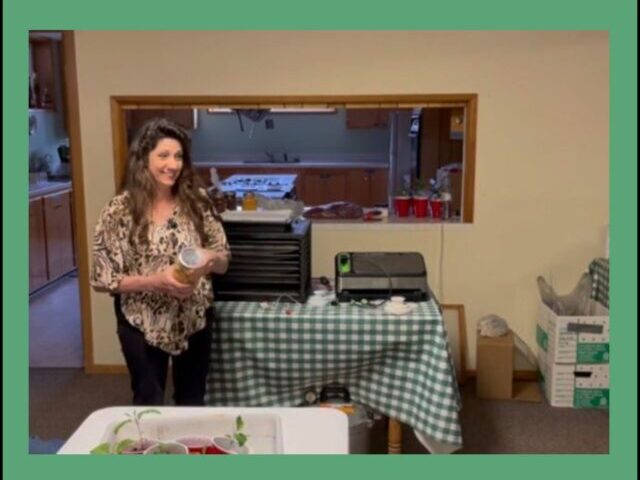
People During the Great Depression Era Maintained a Positive Attitude
The Great Depression is often regarded as one of the most challenging periods in American history. Despite the extreme financial hardships faced by individuals and families across the nation, there were still those who managed to maintain a positive attitude.
These people found solace in simple pleasures, such as spending time with loved ones, taking walks in nature, and engaging in creative pursuits. Many turned to religion or spiritual practices as a means of finding inner strength and hope during these difficult times.
Today, we can practice some of these same strategies to cultivate positivity in our own lives. By focusing on the people and activities that bring us joy, seeking out moments of solitude and reflection, and connecting with a higher power or sense of purpose, we too can weather challenging circumstances with grace and resilience.

Mindset and Attitude and Importance
Having a positive mindset and attitude can completely change the way we look at and approach life. It allows us to view challenges as opportunities and failures as chances to learn and grow.
A positive outlook can also improve our overall well-being and relationships with others.

It’s not always easy to maintain, but with practice and a commitment to self-improvement, we can shift our mindset and attitude toward positivity. By doing so, we open ourselves up to endless possibilities and a more fulfilling life.
People During the Great Depression Had to Adopt a Frugal Mindset
The Great Depression was a period of extreme economic hardship, and the people who lived through it had to learn to be incredibly resourceful in order to get by.
Frugality became a way of life for those who wanted to survive, and it was a mindset that informed every decision they made. They had to learn to make do with very little and be creative in the ways they stretched their resources.
For some, this meant learning to grow their own produce or make their own clothes. For others, it meant finding ways to reuse and recycle items that they might otherwise have thrown away.
Whatever the case, the frugal attitude that developed during this time was one that helped people weather the storm of the Great Depression and emerge on the other side stronger and more resilient than ever.
Conclusion to Frugal Tips of the Great Depression
Frugal tips of the great depression can still be applied to our lives today. Taking inspiration from the people of the Depression can help us to be better prepared for difficult times in our lives.
Growing your own food, making do and mending clothes, and cooking from scratch helped the people of the Depression era to survive. Learning and implementing these skills will help us to adapt and thrive in difficult times.
In Addition, we can reduce waste, adopt a positive attitude and find simple forms of entertainment. Making DIY household products, bartering and trading items with others and secondhand shopping are also great frugal tips we can learn from the Depression era.

In times of struggle, it is important to remember the hardship of the past and use those lessons as a guide to live more mindful and meaningful lives today. Those lessons can encourage us to acquire invaluable skills that will help us to become more resilient and resourceful now and in the future.
Reiterating the Timelessness of the Frugal Wisdom From the Great Depression Era
The wisdom of depression era frugality is striking and timeless. It remains a valuable lesson for anyone in any generation.
Although the circumstances may be unique to each era, the importance of saving money, investing wisely, budgeting responsibly, and avoiding debt are all relevant, no matter the time period.
Andy of Stockfit, states, “Credit card debt is the worst debt you can have”. He suggests paying it off in full so you don’t risk getting hit with hefty interest rates. This can happen very easily so it’s best not to take chances, especially with interest rates over 20%.
By learning from the experiences of our predecessors and their propensity for thriftiness during adverse times, we can remain financially resilient and secure through life’s continual challenges.

Overall, it can be said that frugality is a lesson that holds considerable weight no matter what decade one finds themselves in. Consider incorporating some Depression-era frugal living tips into your daily life – you may learn something useful!
If you like this post, can you please share on Pinterest:

Encouragement to Incorporate These Historically Accurate Frugal Tips of the Great Depression
To conclude, incorporating frugal tips of the Great Depression Era into your modern lifestyle can be both rewarding and beneficial. It is important to remember to always live within your means while still enjoying life’s precious moments and spending time with loved ones.

Taking advantage of these principles will not only save you money in the short-term but also support a more sustainable and long-term living situation that allows you to continue creating special memories and experiences.
The key is to combine historical knowledge such as frugal tips of the Great Depression with present-day money management strategies, all with an eye toward achieving your financial goals.
–YOU MIGHT ALSO LIKE–
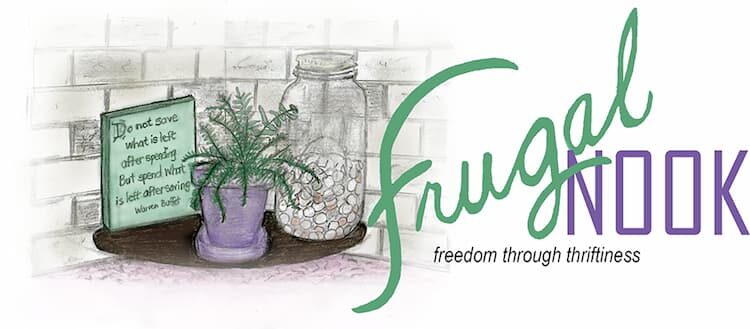










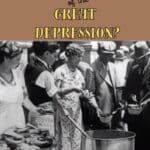


Wow, This is a lot of information. In-depth article indeed.
Thank you, Lani!
Great article! It’s always fascinating to read about how people get by during tough times.
Yes, their ingenuity is certainly amazing and inspiring, Tom.
I love this! I really enjoyed reading this article! – Mostly because I am trying live more simple and less stressed out and busy all the time. It’s really amazing how many skills most people have lost since the great depression. Thanks so much for sharing!
I’m so glad that you enjoyed my blog post, Nicole! Yes, people really have lost (or never gained) skills that our grandparents had.
I loved reading this post because we are homesteading, and doing our best to learn old fashioned skills JUST IN CASE we end up needing them. It’s really important for our kids to see us doing these things and normalizing that not everything has to come from the store!
My guess is we’re going to need all the skills we can learn considering the way things seem to be heading.
Great tips! I just planted some seeds to start griwing our own food and hope we can do more. I’ve been a thrift store shopper since childhood.
Yeah, fellow thrift shopper! I also did a blog on thrift shopping that you might want to read, Hilary. I hope you have success with your garden!
Wow! What a great post. So many great tips. This is a post I’m saving to refer to often. Thanks for sharing.
Thanks, Sara! I’m thrilled that you found my blog post so helpful!
We can learn so much from our ancestors! I remember seeing my grandmother doing many of the things listed in this article – which I am sure she learned from her mother who lived through the depression. Thanks for the reminders to not waste!
Yes, our ancestors left behind so much wisdom for us to learn from, Stephanie.
We definitely show draw inspiration from the depression.
Wow, so many great tips! I definitely can implement some of these tips! Thanks!
That’s a whole list of tips. I’m currently struggling with money, and I think following what you have talked about in this post is going to help me. Thanks
You’re welcome! I’m thrilled that you believe the tips are going to help you, Patrick!
Yep, my grandmother implemented a LOT of those things! She was a role model for me when I grew up. There are many small tricks to save money and make the most out of what you have. Many things are forgotten nowadays.
I really enjoyed reading this article and there’s so much to take away and put into action. Thank you.
You’re welcome! I’m thrilled that you enjoyed the post, Melanie!
This is an amazing resource! Thank you for sharing
You’re welcome! I’m so happy you’re finding it so helpful, Amy! 🙂
This is such a wealth of knowledge! So many great frugal tips that can still be used today.
There are so many lessons to learn from the Great Depression Era. My grandma was raised during that time on a small farm in a large family and passed on some great lessons. I learned a lot about using what you have and saving on items.
Yes, that generation had a lot to teach us, Debbie. They went through a terrible time.
These are great frugal tips from the Great Depression era. So much of that wisdom is still applicable today. Thank you for all of the tips and ideas.
You’re welcome, Lisa! Thanks for reading!
I love how your article about frugal tips of the great depression highlights the resourcefulness and resilience of people during challenging times truly speaks volumes. It’s a testament to the ingenuity and determination of individuals who had to rethink their approach to finances and everyday living during that era. I remember how frugal my grandparents as their frugal habits lasted a lifetime.
Thank you, Julie! Yes, those people had to go through very challenging times, but nobody had to help them with frugal tips – they learned the hard way.
I love these frugal tips of the great depression! Amazing how we can make use of everything and use it with intent and consciously. The excess today is a big problem. I enjoyed this post a lot!
Thanks, Hadassah!
There are certainly many lessons from the past we can learn. These frugal tips from the Great Depression are important to consider in the current economic climate. I like the idea of growing a small garden at my home.
I’ve grown a garden for over 25 years. It really does help, Debbie.
Your Frugal Tips of the Great Depression has been such a fun read!! Combining history with tips for today is such a good idea. I’ve often thought I was born in the wrong era!!
It’s amazing how that generation handled their situation and that we can learn from it, Katy.
Thank you for the good article. I always wanted to learn more about the Great Depression. By the way, many of my friends have their own vegetable gardens in their backyards. They share tomatoes and zucchini with me.
You’re welcome, Olga! That’s cool that your neighbors share their vegetables with you!
Our ancestors were clever and innovative – I can remember my great-grandmother reminiscing about how they managed during the Great Depression. Not only do this tips save one money but also respect our environment.
Thanks for reading and for commenting, Stephanie!
I mean, if any generation was qualified to teach us how to make the most of what we have, it’s that generation! Love this.
Thanks, Beth!
These all feel like things I learned growing up. I lived in the deep south, and we did most if not all of these.
Awesome, Ben!
I’ve been toying with the idea of starting a little veggie garden in my backyard, but I wasn’t sure if it would be worth it. After reading about how people back in the day made the most out of their “depression gardens,” I’m inspired to give it a shot.
Awesome, Karen! Do it! It is a learning curve, so you might not get the best results the first year.
You’re absolutely right! While the Great Depression was a challenging time, it definitely fostered a spirit of resilience and resourcefulness. Having to make every penny count and avoid waste at all costs is a valuable lesson for us today. There is some great inspiration for frugal living tips here!!!
Thanks, Barbie!
My grandmother went through the great depression. Many of your tips line up with things her family did to cut down on expenses.
Thanks, Richard, for reading and for your comment!
This is a great article about how people coped with hard times during the Great Depression by being resourceful. It’s interesting to see how many of these tips can still be applied to modern life!
They sure can, Brittney!
The people who lived through the Great Depression certainly had their work cut out for them! I do love the idea of growing my own food; it’s something “frugal” that is also so much better for you!
I love growing my own food too. It’s relaxing working outside in the garden.
I completely agree with your conclusion! Integrating frugal tips from the Great Depression into our modern lives is both rewarding and beneficial. By living within our means and focusing on what truly matters—cherishing life’s precious moments and spending time with loved ones—we not only save money but also build a sustainable lifestyle.
Thanks for reading and for commenting, Pedja!
What great tips. Key word is frugal. Fortunately, i do a lot of these already exceot for the diy stuff!
Thanks, Carol!
There are indeed a lot of lessons that can be learned from the past. I agree with you that cooking from scratch certainly can save us money. Cooking in bulk and meal planning can make a difference.
Love the idea of starting a small garden and growing our own food/ veggies.
I save a lot of money cooking from scratch, growing some of my own food, canning and raising chickens.
I totally agree with you, learning about the past history gives us a treasure of lessons and things to improve. I love it when my grandfather and father share stories with us and we learn a lot.